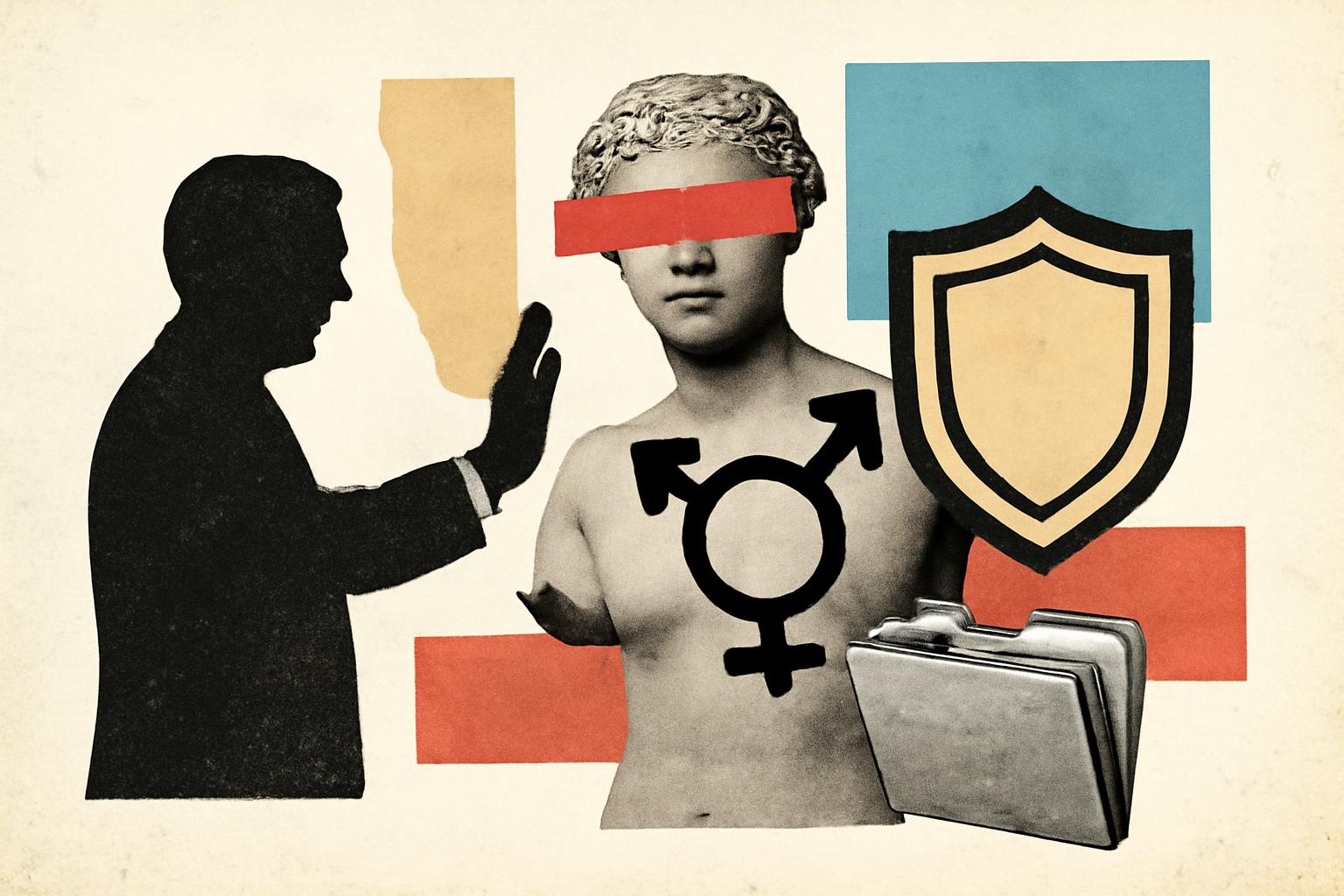A dispute is brewing over whether the state should keep a central record of people’s gender entry and first name changes before they take effect under Germany’s Self-Determination Act. The SPD resists a new centralized register or any broad tightening that would roll back the law, with Falko Droßmann arguing there’s no reason for blanket restrictions or for reversing the act. The Union, however, wants a serious rethink and hints at tighter rules; the CSU-led Interior Ministry has drawn up a data-regulation proposal that would require recording in the civil register the gender entry and the first name before a change, plus the date of the change, the authority that carried it out, and the file number. The ministry defends the move by saying the act is still new and will attract more people to seek gender changes, a point Greens and others criticized. The Liebich case—where a right-wing extremist used the older regime’s stricter requirements and then changed her gender entry and name after the act took effect—has intensified calls for “clear rules against abuse,” though Droßmann calls that a targeted misuse by a known extremist, not a systemic flaw in the act. The Union’s backing for reform or abolition of parts of the law clashes with the coalition agreement to evaluate the act by July 2026, while Greens and others warn that data collection would invite surveillance and stigmatization, even as supporters claim it would help monitor and prevent abuse without compromising the law’s aims.
From a libertarian vantage, this is a stark reminder that power over information is power over people. Hayek warned that centralized knowledge is a mirage and that attempts to gather and classify social realities through top-down planning nearly always disappoint and encroach on liberty. A central civil-register-style database designed to track every gender-change decision and the bureaucratic breadcrumbs around it is not a neutral ledger; it is a tool that can be misused, repurposed, or reflexively expanded to regulate conduct far beyond its narrow justification. The more the state maps intimate dimensions of a person’s identity, the more it learns to police, adjudicate, and deter private choices—and the more it erodes the spontaneous order of voluntary social life that grows strongest when individuals a priori own and control the information about themselves.
Nozick would treat such a proposal as a direct intrusion into self-ownership and bodily sovereignty. If individuals own themselves, then the state’s claim to record, store, and potentially leak or misapply data about someone’s gender status in a central registry is a coercive footprint on the individual’s person and identity. Even with assurances of oversight, privacy protections, or purpose limitations, the mere existence of a centralized data repository creates a lattice of power the state can expand or reframe to suit politically convenient narratives about “abuses” and “safety.” The right answer is not more surveillance under a veil of preventing abuse, but far less coercive intrusion into private lives. The law should protect the freedom to define oneself without inviting a bureaucratic file number to accompany every self-authenticated change.
Rand would insist that individual rights, not collective risk management, ground policy. A program that records gender entries, names, dates, authorities, and file numbers treats identity changes as raw material for bureaucratic control rather than as deeply personal acts of self-definition. The state’s interest in preventing “abuse” cannot trump the person’s right to make autonomous decisions about their identity and to engage with civil life on terms they choose, free from prying databases and stigmatizing data trails. The appeal to “prevent abuse” should be met with respect for individual rationality and private responsibility, not with larger, less scrutinized systems of data retention that empower executives at the ministry to map, grade, and police personal decisions.
What would a libertarian approach look like here? First, resist expansion of centralized data collection as a general rule. A minimal state does not become more legitimate by collecting more information about its citizens; it becomes more dangerous. Second, when abuses are alleged, rely on targeted, proportionate enforcement against actual wrongdoing rather than broad, prophylactic surveillance that stigmatizes entire groups or life choices. Third, protect the principle that private alternatives and voluntary associations—not the state—should handle identity verification, non-discrimination, and privacy protections. If civil society or private registries offer opt-in, privacy-preserving options, consumers can choose among trusted providers rather than surrendering their lives to a government database. Fourth, any evaluation or reform process should be bounded by fixed sunset tests and transparent accountability, not a bureaucratic expansion that uses a single high-profile case to justify broader control.
In short, the Self-Determination Act’s governance debate exposes a fundamental libertarian axiom: individual autonomy flourishes when the state does less, not more, to map, monitor, or constrain private lives. The push for a central register—especially with detailed metadata about every change—is exactly the kind of state intervention that Hayek warned would crowd out the spontaneous order of voluntary, private arrangements and invite creeping encroachment. Nozick’s insistence on rights against invasive interference and Rand’s defense of rational self-determination both point toward rejecting this data-for-control bargain. The proper response is to defend privacy, deny the premise that more data equals more safety, and rely on principled, minimal-state safeguards that protect liberty without turning identity into a government-regulated asset.
